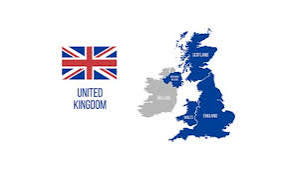News
UK Issues Fresh Travel Warning Over Worsening Insecurity In Nigeria, Lists 20 States As Unsafe

The United Kingdom’s Foreign, Commonwealth and Development Office (FCDO) has issued a fresh travel warning to its citizens, advising against travel to large parts of Nigeria amid escalating insecurity, kidnappings, terrorism, and violent crime.
In its latest Foreign Travel Advice published on GOV.UK and obtained by SaharaReporters on Sunday, the British government said insecurity “is increasing across Nigeria,” warning that kidnapping, violent crime, and intercommunal violence are now widespread across all regions of the country.
“Insecurity is increasing across Nigeria. Kidnapping, violent crime, and intercommunal violence occur throughout all regions of Nigeria,” the FCDO stated.
The advisory urged British nationals in Nigeria to exercise “extreme caution,” review safety measures, and ensure they have “contingency plans” in place.
The FCDO advised against all travel to six northern states — Borno, Yobe, Adamawa, Gombe, Katsina, and Zamfara — citing the “high and increasing threat from Boko Haram or Islamic State West Africa,” especially around transport hubs, religious sites, and large gatherings.
It also warned that humanitarian workers and their facilities could be directly targeted.
“Humanitarian personnel, vehicles, supplies, and infrastructure can be targeted by terrorists and criminals,” the statement read.
In addition, the UK government advised against all but essential travel to Bauchi, Kaduna, Kano, Kebbi, Jigawa, Sokoto, Niger, Kogi, Plateau, and Taraba states, as well as the outer suburbs of Abuja within the Federal Capital Territory (FCT).
“Violent crime, often involving firearms, has increased and spread from the outer suburbs to more central, wealthier areas of the city,” the UK government noted, adding that British staff in Nigeria have been ordered to restrict movements to central Abuja.
The advisory also flagged occasional protests in the capital as potential flashpoints, warning British nationals to monitor local media, avoid demonstrations, and follow directives from local security forces.
In the North-East, the FCDO said the region remains unstable despite ongoing military operations.
“Regular military operations are ongoing in Adamawa, Borno and Yobe states and there remains a risk of retaliatory attacks,” it said, warning that if security deteriorates in Maiduguri, “it could be extremely difficult for you to leave the city.”
The UK also advised against travel to the riverine areas of Delta, Bayelsa, Rivers, Akwa Ibom, and Cross River states, citing persistent militant activity, attacks on oil and gas installations, and frequent incidents of kidnapping.
“Militant groups are active across the Niger Delta region and have carried out many attacks on oil and gas infrastructure,” the document warned.
“There’s a high risk of armed robbery, criminality, and kidnap.”
The advisory further highlighted worsening insecurity in the South-East, where secessionist groups have frequently clashed with security forces.
“Attacks and violent clashes often occur with the military and other security forces. Although foreign nationals are not normally targeted, there is a risk you could be caught in an attack,” the statement said.
The South-West, including Lagos, was also cited as an area of concern. The FCDO described violent crimes such as armed robbery, car-jacking, mugging, and kidnapping as “common,” especially in major cities.
“Travellers should be cautious when travelling in Lagos, particularly on the mainland, and avoid movement at night,” it added.
Although large-scale terrorist attacks are rare in the South-West, the UK noted that “Islamic State West Africa claimed two attacks in 2022,” though none targeted foreigners.(SaharaReporters)
-

 Metro21 hours ago
Metro21 hours agoLagos refers Simi’s resurfaced tweets to police for probe
-

 News7 hours ago
News7 hours agoNo Power Can Stop Muslims From Practising Shariah – Shariah Council
-

 News23 hours ago
News23 hours agoFubara Appoints New SSG, Chief Of Staff
-

 News4 hours ago
News4 hours agoOver 100 terrorists storm Benue villages, kill 150 – Witness tells court
-

 News16 hours ago
News16 hours agoAmid FCT Issues, Wike Flies Sons To London On Condolence Visit
-
News23 hours ago
Lakurawa Terrorists Kill 5 Worshippers In Kebbi Mosque
-

 Business21 hours ago
Business21 hours agoLafarge Africa revenue hits record N1.1trn in 2025
-

 Business4 hours ago
Business4 hours agoFG deepens CREDICORP, targets wider coverage, disbursements
















